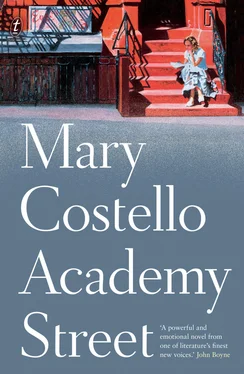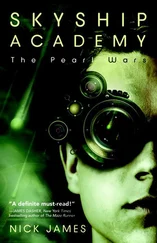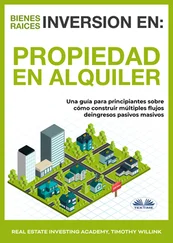Mary Costello - Academy Street
Здесь есть возможность читать онлайн «Mary Costello - Academy Street» весь текст электронной книги совершенно бесплатно (целиком полную версию без сокращений). В некоторых случаях можно слушать аудио, скачать через торрент в формате fb2 и присутствует краткое содержание. Год выпуска: 2014, Издательство: Text Publishing Company, Жанр: Современная проза, на английском языке. Описание произведения, (предисловие) а так же отзывы посетителей доступны на портале библиотеки ЛибКат.
- Название:Academy Street
- Автор:
- Издательство:Text Publishing Company
- Жанр:
- Год:2014
- ISBN:нет данных
- Рейтинг книги:3 / 5. Голосов: 1
-
Избранное:Добавить в избранное
- Отзывы:
-
Ваша оценка:
- 60
- 1
- 2
- 3
- 4
- 5
Academy Street: краткое содержание, описание и аннотация
Предлагаем к чтению аннотацию, описание, краткое содержание или предисловие (зависит от того, что написал сам автор книги «Academy Street»). Если вы не нашли необходимую информацию о книге — напишите в комментариях, мы постараемся отыскать её.
J.M. Coetzee
Academy Street This is an intimate story about unexpected gifts and unbearable losses, and the perpetual ache for belonging. It is exquisitely written and profoundly moving.
Academy Street — читать онлайн бесплатно полную книгу (весь текст) целиком
Ниже представлен текст книги, разбитый по страницам. Система сохранения места последней прочитанной страницы, позволяет с удобством читать онлайн бесплатно книгу «Academy Street», без необходимости каждый раз заново искать на чём Вы остановились. Поставьте закладку, и сможете в любой момент перейти на страницу, на которой закончили чтение.
Интервал:
Закладка:
After Evelyn’s marriage Miss Tannian comes more often, bringing cakes and tarts she has baked, sometimes arriving just before teatime so that she has to be invited to eat with them. She cuts up Oliver’s food and butters his bread and tries to wipe his face, before he bats her away. Everyone grows nervous. Tess feels sorry for her. Her father says nothing but frowns often and one evening before they’re finished he rises suddenly from the table and storms outside. Later, when Miss Tannian is leaving, Tess sees him cross the courtyard and stand talking to her. Miss Tannian looks flustered and lowers her head and seems to shrink and slide into her car. Many weeks pass before she returns and when she has finished testing the hens for pin-feathers she does not linger or enter the house. She rarely visits after that. Once, her father asks, ‘When was Rose here last?’
It is June and she is in her last week of 6th class, the end of her time in national school. She and Oliver walk home, down the avenue and into the yard. There are men gathered around the old well in the corner. Years ago, long before Tess was born, the well was covered with a flagstone, for fear that the old women from the village who came for water would fall in. For as long as Tess remembers her family has gotten their drinking water from the village pump. On summer evenings the older boys and girls of the village gather there, giddy and tense, something in the air always. One evening her father came over the road and hunted herself and Claire home. ‘Get home out of that, ye.’ His face was red with rage. He did not want them mixing. Now the flagstone is pulled away. He will sink his own pump and men have come to take a sample from the well for testing.
Mike Connolly is holding the end of a rope that snakes down into the darkness. The men edge closer. Her father calls Denis’s name. Then he waits. And again, Denis . A strange quiet falls on them. Mike Connolly leans over and peers in. She feels fear gathering in the men, a holding of breaths. And then there’s a stirring, a shifting of feet and bodies. ‘He’s coming,’ her father calls. Her father is so full of anger or irritation always, but now his face is open and bright and his voice is full of relief and for the first time she understands something about his life as a father. She moves closer, sees that there are stone steps descending inside the well and, as she gazes down, Denis begins to appear out of the darkness. Step by step he climbs, his black head and white face and long thin body rising up out of the well until, pale and dazed, he surfaces and blinks in the sunlight. Mike Connolly puts out a hand and Denis takes it and steps over the edge onto the gravel. He passes a water bottle to one of the men, his hand shaking. Then, without a word, he turns and crosses the yard.
In September Tess will go, along with Maeve, to the convent boarding school in a town twenty miles away. In the weeks before, preparations are made and new clothes are bought. She has the feeling that these are her last days. She walks around the house and yard, uneasy. She would like her father to notice her, to acknowledge that she is leaving. Just once, she would like to please him.
At the school she is accompanied everywhere by the peal of bells, the smell of wax and the echo of her feet on polished floors. A feeling of melancholy registers when the strains of hymn-singing waft out from the chapel. In the classroom teachers in gowns stand on the raised dais, and some, with just a word or a hand on a book, hint of things to come, of a wider world that gives her a feeling of lift and light and promise. At night in the dormitory the sound of forty sleeping girls commingles with thoughts of home and Oliver and Claire and her father, and Denis, in his silence. Some nights she cries. She would like to have taken them all with her, make them all fit into her new world. So this is homesickness, she thinks. But there is something about the pitch of her pain that is not all terrible. There is something true and clear and cleansing about it that makes her want to endure it. It is a test, a wall she must break through. She takes comfort in knowing that Maeve is there, that somewhere in the building there is one who shares her blood and knows everything of her life before now.
She is fond of all subjects, except Mathematics — algebra, trigonometry with its baffling formulae — and does well in her exams. But she is wary, watchful all the time. Only in English class when the teacher recites Wordsworth or John Donne does she briefly forget where she is, carried by sound and image to far-away villages and rivers, and cathedrals rising to meet the heavens. At these moments she has the feeling that there is something at hand, that she is coming close to something she cannot quite reach, but which she knows is right and beautiful. She does not like to speak in class and on the rare occasions when she is required to answer a question or recite a poem her insides contract, and she is rigid with fear that she will say something foolish and shame herself. When it is her turn to read, the teachers merely nod to her. She is certain that not one of them knows her name.
She grows to love the school chapel with its sanctuary lamp and stained-glass windows. On Sundays and holy days — All Souls, Holy Week, Pentecost — the priest reads from the Scriptures, the Psalms, with a lilting voice, the Latin words pouring over her, more easily understood now. Dominus vobiscum. Et cum spiritu tuo. The swing of the thurible at Benediction and the smell of incense, the peal of little bells. But it is the choir — the clear pristine voices and the sombre notes rising from the organ — that stirs something deep in her. Panis Angelicus. Tantum Ergo. O Salutaris Hostia.
In her second year her Latin teacher falls ill and a new teacher, Mr Brown, temporarily takes her place. He is tall, grey-haired and does not wear the black gown that the other teachers wear. Though he lives in the town, he speaks with a scholarly accent — perhaps even English. His voice is soft. She notices the kind way he has of listening — how, when a girl is answering a question he does not look directly at her, but yet fully attends. One day at the end of class he singles Tess out and asks her to wait back.
She stands before him.
‘I see that you’re from my part of the county, Miss Lohan,’ he says. ‘On the school roll, your address caught my eye.’
Her heart takes fright. A raft of fears passes through her: he knows her father; her father has not paid the school fees; she is here under false pretences. She is an imposter.
He looks out over his glasses at her, and waits. She does not know what he expects. He sits back, takes off his glasses.
‘I was born in Easterfield House,’ he says, and pauses. ‘I lived there until I was eight. My family sold the place, and then a few years later your father bought the house and some of the land.’
She is lost for words. She has never given thought to Easterfield’s past. She cannot conceive of this man in its rooms, its beds, running through the fields.
‘How is the old house?’ He is smiling, as if asking after a relative.
‘It’s good, sir.’
‘Does the roof still leak? Every so often rainwater would collect in the valley and burst through the ceiling.’
‘Yes, sir, that happened once, when I was small. The ceilings upstairs were ruined. I don’t remember it, but the stains are still there.’
‘And your father farms the land? Livestock?’
‘Yes, sir.’
‘And you have brothers and sisters? A brother, who will inherit the place perhaps?’
‘Yes, sir. Denis, my older brother.’
He looks at her for what seems a long time. She thinks he is about to announce a visit to Easterfield. He will take her in his car tomorrow and they will arrive, with no forewarning. She starts to panic.
Читать дальшеИнтервал:
Закладка:
Похожие книги на «Academy Street»
Представляем Вашему вниманию похожие книги на «Academy Street» списком для выбора. Мы отобрали схожую по названию и смыслу литературу в надежде предоставить читателям больше вариантов отыскать новые, интересные, ещё непрочитанные произведения.
Обсуждение, отзывы о книге «Academy Street» и просто собственные мнения читателей. Оставьте ваши комментарии, напишите, что Вы думаете о произведении, его смысле или главных героях. Укажите что конкретно понравилось, а что нет, и почему Вы так считаете.












